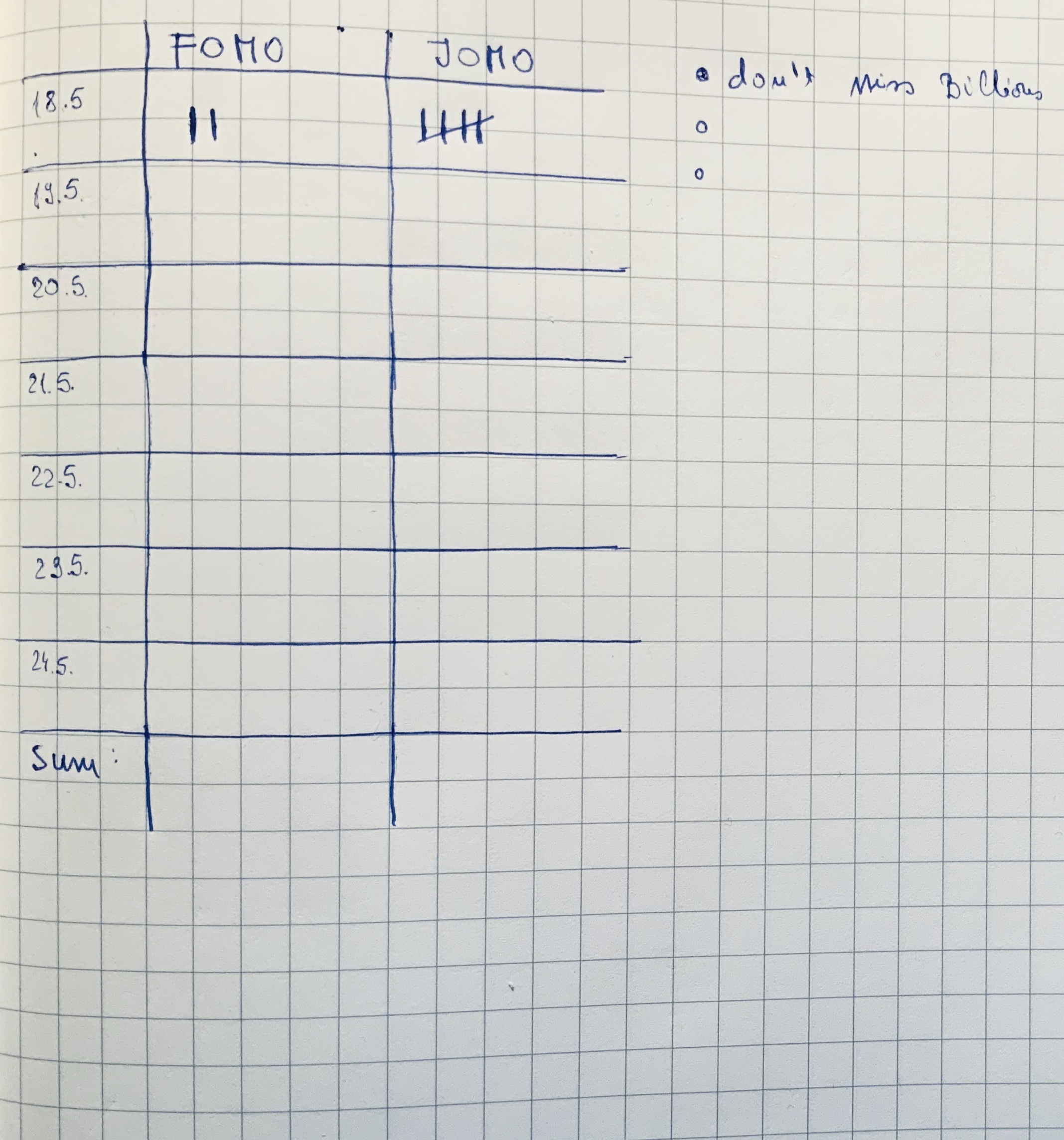♦ 🐆 2 min, 🐌 5 min
🔬 Weekly experiment 20, 2020
Hey There.This is the first newsletter that was actually finished in advance. Yeah me. I think my new home writing corner is doing wonders:
FOMO vs JOMO
In our defence. We are at a disadvantage here. Upon closer look, you'll notice that a large proportion of internet products and marketing efforts (OK all marketing) focuses on capturing your attention. Marketers are trying to convince you that you shouldn't miss on the new shiny thing. In other words, advertisers are aiming to create the fear of missing out (FOMO) in you.There's another side of the coin. Joy of missing out (JOMO). I first came across the JOMO definition while reading the article from The Economist: The two tribes of working life . In the article the author describes two types of people:Those who like to be involved in everything are "FOMOs" because they suffer from a "fear of missing out". And then there are those who would ideally want to be left to get on with their own particular work, without distraction—the "JOMOs" (joy of missing out).I have to do it all. I can do it all. I can't miss this meeting. I need to volunteer for every project. I'll read this later. Is there anything new on my phone or email. What about social media, mail, news (or all) first thing in the morning. Then you're probably fall into the FOMO category.I don't have to do it. Nah I won't read it. I can skip this. I'll volunteer when absolutely necessary. Then you probably fall into the JOMO camp.Conquering FOMO & JOMO
Now you might not fall into FOMO or JOMO category in all aspects of your life. For some, you might be in JOMO camp for others in FOMO camp. So the real question is:What are the things that you enjoy missing out, and what are the things you wouldn't miss for anything in the world?I absolutely don't want to miss out any of the episodes from Billions TV show. But I really don't mind missing out on a big, long, tedious and unstructured meeting.It's completely OK if you are a JOMO or FOMO. By being JOMO, you free up time for other activities you care about. Nothing wrong with being FOMO about missing time with your family.If we fall into the FOMO camp for the majority of things we do, it can be hard to break free. It requires a fundamental change in thinking. Any ideas on how to do it?I'm right now tracking how often I fall into one camp or the other. Try it for your self. All you need is a piece of paper and the following table:
Small weekly experiment at a time 21, 2020
In the past week, I tried practising a two to three hour shutdown evening routine. It's pretty awesome. It's funny. I've been practising this in the past but somehow got sidetrack in the last few months. Which brings me to probably one of the most profound lessons when it comes to lasting life changes:Every time you change your environment habits will break.In the upcoming week, I don't really have a specific experiment in mind. But I'll try new things every day. Making a small change here a little change there. Just like water can create a hole into the stone with drip, drip, drip, ... for thousands of years you can achieve considerable changes in your life. One small step at the time. OK, you don't have 1000 years. I think.If you find a typo, have a comment or have an idea for improvement shoot me a message. 😉Till the next weekly experiment.ZigaP.s. If you like the newsletter, share it. 😉Get notified & read regularly 👇